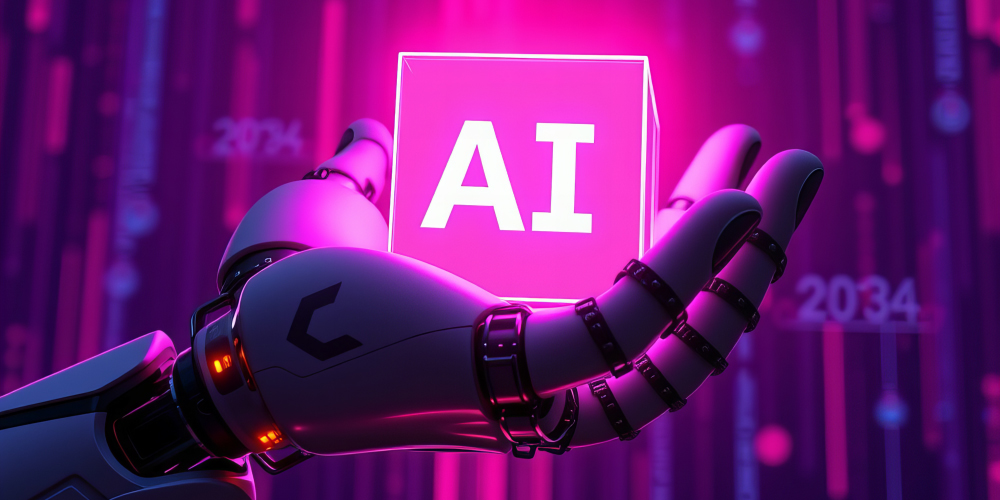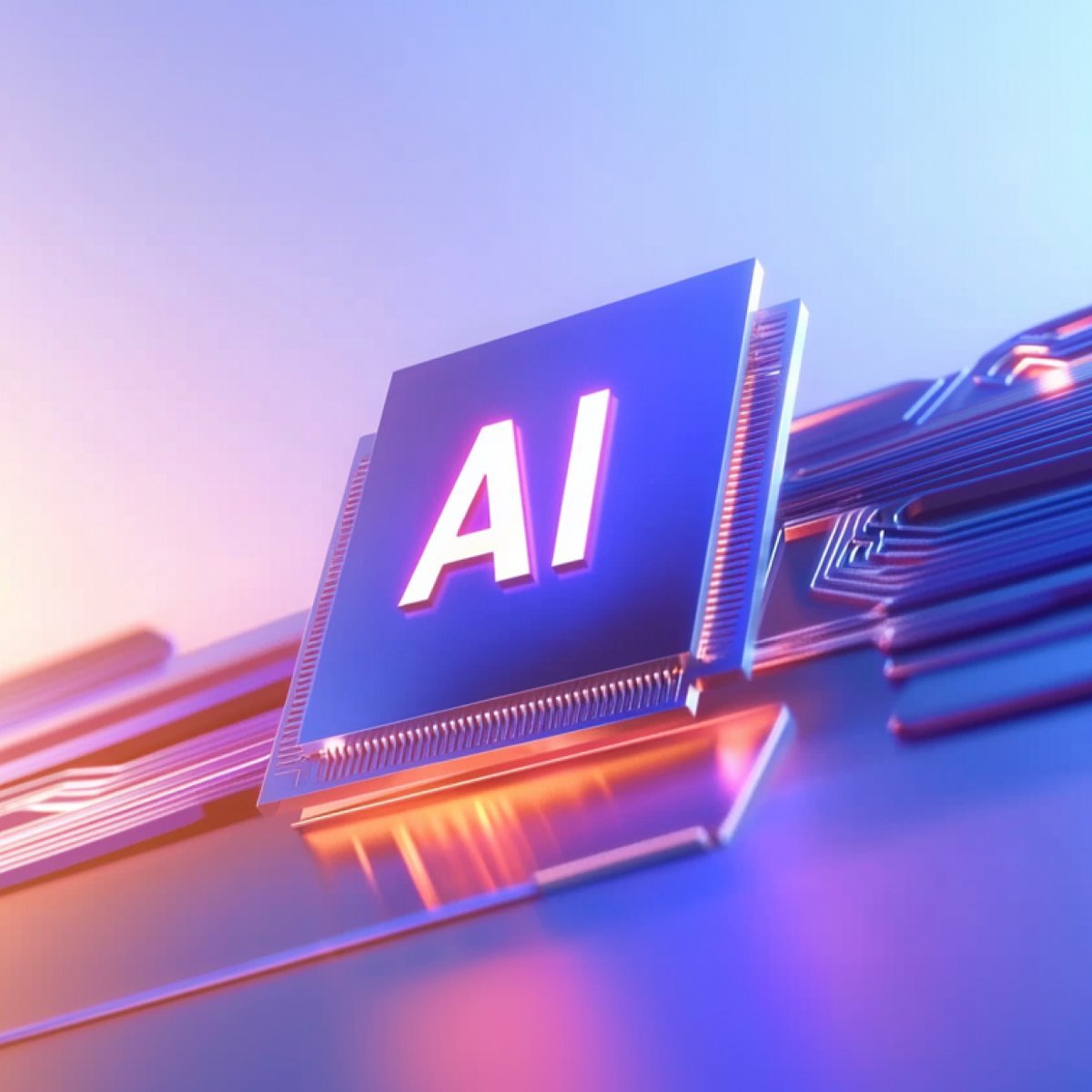How Artificial Intelligence is Transforming Industries
Artificial Intelligence (AI) has evolved from a niche technological innovation into a global force driving business transformation. Across industries, AI-powered solutions are delivering quantifiable improvements in efficiency, cost reduction, and productivity. From predictive maintenance in manufacturing to fraud detection in finance, AI is proving its worth through measurable outcomes. This article provides a comprehensive study of AI’s impact across multiple industries, presenting key statistics, case studies, and references to substantiate its effectiveness.
INFOC’s Azure Cloud Migration and Modernization Services
1. AI in Business and Productivity
Benefits
AI-driven Enterprise Resource Planning (ERP) and Customer Relationship Management (CRM) systems enhance operational efficiency by automating data entry, predictive analytics, and customer engagement. Businesses that integrate AI into their ERP and CRM systems report increased operational agility, reduced human errors, and better decision-making. AI allows real-time data analysis, improving forecasting accuracy and resource allocation.
For example, Microsoft Copilot in Dynamics 365 enables organizations to speed up repetitive tasks, optimize workflows, and improve collaboration. The automation of manual processes results in significant cost savings. Additionally, AI-driven chatbots and virtual assistants enhance customer service, providing instant responses and personalized interactions, which improve customer satisfaction and retention.
A study by Gartner (2023) highlights that AI in ERP can reduce operational costs by up to 30%, while AI-driven CRM solutions improve customer retention rates by 20%. Companies that deploy AI-driven business applications experience faster decision-making, streamlined operations, and enhanced user experiences, leading to overall business growth.
2. AI in Retail & E-commerce
Benefits
Retailers leverage AI for personalized shopping experiences, optimizing inventory management, and fraud detection. AI-powered recommendation engines analyze customer behaviors, past purchases, and preferences to deliver tailored product suggestions. Amazon’s AI recommendation system, for example, contributes to 35% of its total revenue.
AI enhances demand forecasting, allowing retailers to manage supply chains more effectively by predicting sales trends and reducing waste. A McKinsey report (2023) states that AI-based demand forecasting improves accuracy by 20-50%, leading to better stock management and reduced losses. Additionally, AI automates pricing strategies by analyzing market trends, competitor pricing, and customer demand.
AI also plays a crucial role in fraud prevention, with machine learning models detecting fraudulent transactions in real time. By identifying unusual patterns in purchases and transactions, AI-powered fraud detection systems reduce financial risks and protect businesses and consumers.
3. AI in Manufacturing & Engineering
Benefits
Manufacturing companies utilize AI to improve production efficiency, reduce downtime, and enhance product quality. AI-driven predictive maintenance enables manufacturers to identify equipment failures before they occur, reducing unplanned downtime by up to 50% (Deloitte, 2023).
AI-powered automation optimizes production lines by improving material utilization and minimizing waste. Smart robots equipped with AI assist in assembly processes, increasing precision and speed. Quality control has also improved significantly with AI-powered visual inspection systems, which detect defects with 90%+ accuracy (PwC, 2023).
Siemens, for instance, implemented AI-driven predictive maintenance, leading to a 20% reduction in maintenance costs and a 30% improvement in asset reliability. AI’s ability to analyze massive datasets in real time allows manufacturers to optimize operations, reduce costs, and increase productivity.
4. AI in Healthcare & Pharmaceuticals
Benefits
AI is transforming healthcare by improving diagnostics, optimizing patient care, and accelerating drug discovery. AI-driven medical imaging enhances accuracy in detecting diseases such as cancer, increasing early detection rates by 10-20% (The Lancet, 2023).
AI streamlines hospital management by automating appointment scheduling and patient record management, reducing administrative burdens. AI-powered chatbots assist in initial patient inquiries, providing medical guidance and directing patients to appropriate care providers.
In drug development, AI algorithms analyze vast datasets to identify potential drug candidates, reducing the time needed for discovery by 75%. For example, DeepMind’s AlphaFold has revolutionized protein structure prediction, significantly accelerating pharmaceutical research.
AI also plays a critical role in personalized medicine, enabling tailored treatment plans based on genetic and lifestyle data. These advancements improve patient outcomes and reduce healthcare costs by minimizing unnecessary treatments.
5. AI in Finance & Banking
Benefits
Financial institutions rely on AI for fraud detection, risk assessment, and automated trading. AI-powered fraud detection systems analyze transaction patterns, identifying suspicious activities with 80-90% accuracy, reducing financial fraud (PwC, 2023).
AI-driven credit scoring enhances loan approvals by evaluating alternative data sources, improving accuracy by 30-50% (World Bank, 2023). This allows banks to provide loans to underserved customers who lack traditional credit histories.
Automated trading systems leverage AI to execute high-frequency trades with precision, accounting for 60-70% of market trading volume. JPMorgan’s AI-based trading system processes $200 billion in trades daily, minimizing human error and increasing market efficiency.
AI also enhances customer experience in banking by enabling personalized financial advisory services and automating routine transactions. Chatbots powered by AI handle customer inquiries efficiently, reducing response times and operational costs.
6. AI in Energy & Sustainability
Benefits
AI is pivotal in optimizing energy consumption and managing renewable energy sources. AI-driven smart grids reduce energy waste by 15-20% by predicting demand and adjusting power distribution accordingly (IEA, 2023).
AI enhances renewable energy efficiency by improving wind and solar farm performance. Predictive AI models analyze weather patterns to optimize energy generation, increasing output by 10-15%. Companies like Google use AI-driven cooling systems in data centers, reducing energy costs by 40%.
In industrial settings, AI enables energy-efficient manufacturing processes by analyzing consumption patterns and optimizing resource utilization. AI-driven automation reduces carbon footprints, supporting sustainability initiatives.
7. AI in Cybersecurity
Benefits
AI plays a crucial role in threat detection, real-time security monitoring, and breach prevention. AI-driven security solutions analyze network activity to detect anomalies, preventing cyberattacks before they occur. AI-based cybersecurity detects 90% of threats before human intervention (Cybersecurity Ventures, 2023).
Darktrace’s AI-powered cybersecurity system autonomously neutralizes threats, preventing potential financial losses estimated at $1 billion annually. AI also reduces breach response times by 95%, minimizing damage and downtime (IBM, 2023).
In addition, AI strengthens authentication mechanisms through biometric verification, facial recognition, and behavioral analytics, improving security measures for businesses and consumers.
8. AI in Content Creation and Marketing
Benefits
AI is revolutionizing digital marketing by enhancing content creation, personalization, and customer engagement. AI-driven content generation tools enable businesses to produce high-quality marketing materials quickly and cost-effectively. AI-based writing assistants such as ChatGPT, Jasper, and Copy.ai streamline content production, reducing time spent on drafting and editing by 40-60% (HubSpot, 2023).
AI-driven marketing automation tools analyze consumer behavior to create targeted advertisements, improving conversion rates. Predictive analytics help brands optimize advertising strategies, increasing ROI by up to 30%. Additionally, AI-powered video production tools reduce costs by 50-70%, making content creation more accessible.
OpenAI’s AI-powered tools have enabled marketers to generate engaging social media content, email campaigns, and SEO-optimized blogs efficiently. Companies using AI-driven marketing solutions report a 30-50% increase in productivity while maintaining content quality (TechCrunch, 2023).
Envisioning the Future with INFOC
As AI continues to evolve, businesses must strategically integrate AI to remain competitive and future-proof their operations. INFOC is at the forefront of this transformation, helping businesses harness AI-driven solutions for better efficiency, productivity, and innovation.
References
Gartner (2023)
McKinsey (2023)
PwC (2023)
Deloitte (2023)
The Lancet (2023)
World Bank (2023)
IEA (2023)
IBM (2023)
TechCrunch (2023)







